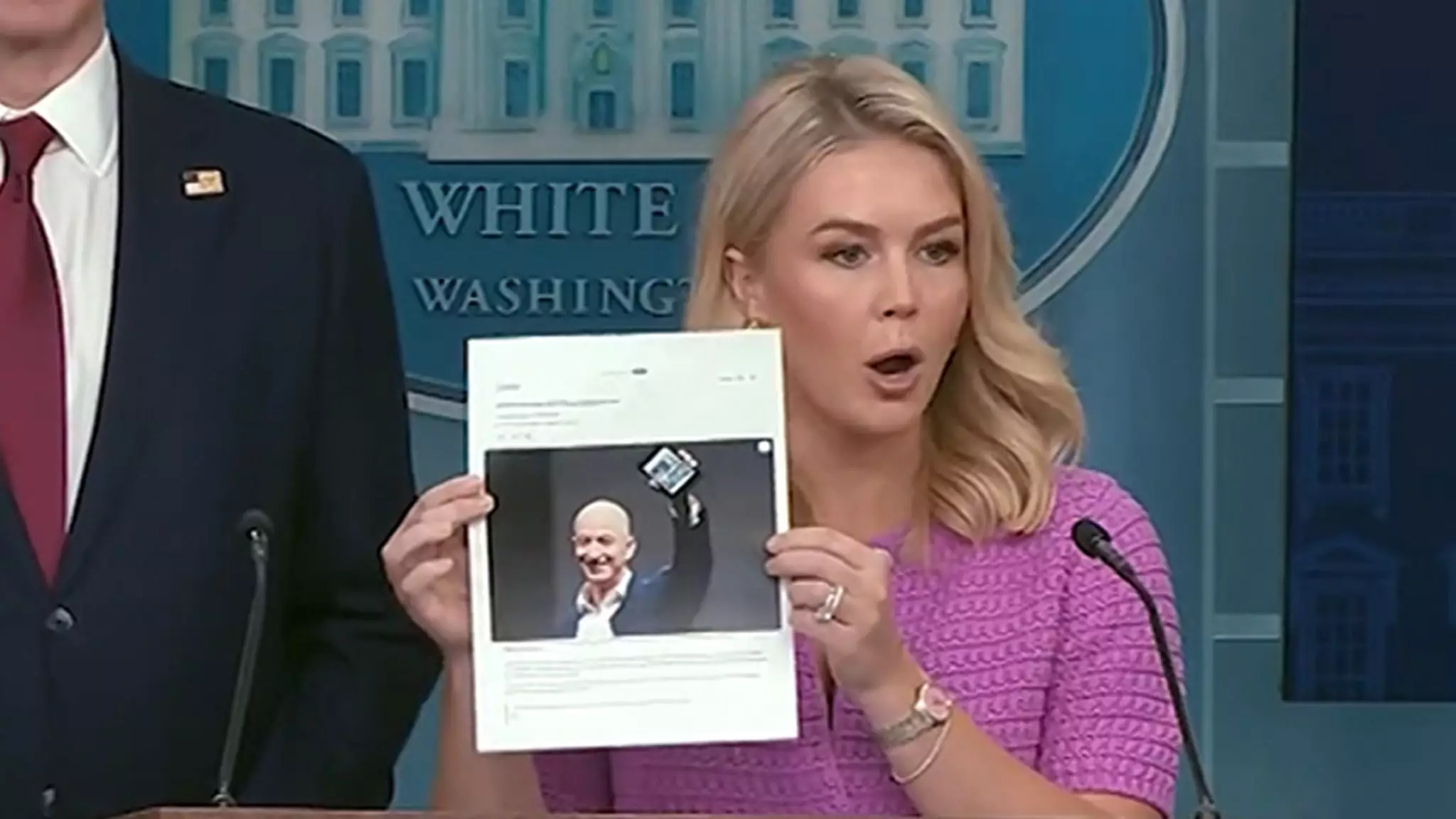In a recent turn of events, Amazon found itself at the center of a political squabble, drawing ire from the Trump Administration. White House Press Secretary Karoline Leavitt vehemently criticized the e-commerce giant’s supposed decision to reflect the financial burden of tariffs imposed by the previous administration on consumers’ bills. The proposed feature was alleged to display how much an item’s price increased due to tariffs during checkout, which Leavitt labeled as a “hostile and political act.” This incendiary remark encapsulates the ongoing tumultuous relationship between corporations and politics in the United States, as businesses increasingly find themselves in partisan crosshairs over their practices and policies.
Political Motivations or Economic Sensibility?
Critics have raised eyebrows at the motivations behind Amazon’s potential pricing transparency, questioning its timing and implications. Leavitt’s pointed inquiry—why the tech behemoth didn’t implement similar measures to highlight inflation during President Biden’s tenure—hints at a deeper sentiment of distrust. It sheds light on how political figures intend to shape perceptions of corporations while reflecting on the broader economic narratives that define their constituents’ experiences. The concern isn’t merely about economic impact; it’s a strategic move to frame the conversation surrounding regulations and political accountability. The question remains: is Amazon acting out of genuine transparency, or is it harnessing political narratives for its advantage?
Amazon’s Denial and Cultural Partnerships
The plot thickens with Amazon’s swift denial of any such plans for the main site, stating that considerations for listing import charges were only relevant for a subsidiary store. This contradiction raises fingers over internal decision-making processes and the company’s relationships with global markets. Beyond pricing issues, Leavitt seized the opportunity to reference an older report from Reuters that suggested Amazon had partnered with a Chinese propaganda entity. This claim, despite it being years old, further complicates the dialogue about the company’s global affiliations and apparent contradictions in promoting American interests while engaging with entities that might clash with those ideals.
The American Supply Chain Dilemma
As the political dust settles, Leavitt urged consumers to prioritize American-made products, presenting a clear agenda to bolster domestic industries amidst ongoing supply chain disruptions. The appeal to national pride in purchasing decisions ignites further debate on the efficiency and appeal of domestic manufacturing versus cheaper imports, especially in a globalized economy where consumer choices transcend national borders. It poses the question: can American consumers realistically pivot their buying habits, and what would that mean for the broader export-import framework?
Responses and the Wider Economic Implications
The discussion surrounding Amazon’s proposed feature highlights broader economic implications, particularly regarding tariffs and their cascading effects throughout the labor market. Treasury Secretary Scott Bessent’s assertion that China could face significant job losses is a reminder of the high stakes involved in international trade policies. As businesses navigate an increasingly tense geopolitical landscape, consumers and policymakers alike are left to grapple with the repercussions of these corporate decisions that straddle economic pragmatism and political symbolism. The dialogue is far from resolved, and as corporate practices evolve, they will undoubtedly remain a flashpoint in the interplay between economy and politics.

